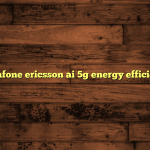Can AI Technology Be Patented?
Table of Contents:
- General Principles of Patent Law
- AI-Specific Considerations
- AI-Generated Inventions
- Future of AI Patent Law
- Strategies for Patenting AI Innovations
- Conclusion
- FAQ
Can AI Technology Be Patented?
With the fast progress in the field of artificial intelligence, there’s a growing number of innovations that combine it into various products as well as services. But, is it possible to secure a patent for artificial intelligence tech? It comes down to understanding the fundamentals of patent law, and certain factors pertinent to artificial intelligence inventions.
General Principles of Patent Law
Patent law protects inventions meeting specific standards:
- Novelty– The invention must be new.
- Non-obviousness– It needs to be an inventive step.
- Usefulness– It has to have a practical purpose.
These are the basic concepts for all kinds of inventions, involving artificial intelligence. The invention should be new, not an obvious advancement over existing technology – it must also have a real use.
AI-Specific Considerations
Yes, AI inventions are suitable for patent protection, although there are certain hurdles as well as factors to keep in mind:
- Human Contribution Requirement– Patent law demands a significant human contribution. This means artificial intelligence helps, it cannot be the inventor. Only people making a big contribution to the concept of the invention are named as inventors.
- Disclosure, also Functionality– Any claim to an artificial intelligence invention needs enough details. It has to show the artificial intelligence functions in a way unlike existing technology. Explain how the artificial intelligence improves on past technology or solves a specific problem that’s technical.
- Patentable Subject Matter– Artificial intelligence inventions fit into patentable categories. Examples are processes, machines, manufactures, also compositions of matter. Purely theoretical concepts, in contrast, aren’t patentable.
AI-Generated Inventions
Artificial intelligence is developing – therefore, it creates inventions on its own. However, these inventions are hard to patent, since there is no human inventor. The Thaler v. Vidal case shows this issue. The United States Patent as well as Trademark Office (USPTO), and the Federal Circuit, said artificial intelligence systems can’t be inventors.
Future of AI Patent Law
Artificial intelligence technology is changing, pushing lawmakers to rethink patent law boundaries. Should artificial intelligence become more self-sufficient, legislation may need changing. How else will artificial intelligence-created inventions get protection? This may mean changing what “inventorship” means, or establishing systems for protecting artificial intelligence-driven innovations.
Strategies for Patenting AI Innovations
- Guarantee Human Involvement– Make sure a person made a big contribution to the invention.
- Clear Disclosure– Give thorough explanations of how the artificial intelligence functions, improving upon what’s available.
- Concentrate on Technical Improvements– Point out precise technical difficulties the artificial intelligence solves. Maybe efficiency gains, or accuracy improvements.
- Stay Informed– Follow recent patent laws, in addition to legal news regarding artificial intelligence.
Conclusion
Artificial intelligence can be patented, though it requires careful thinking about specific issues, including requirements. As artificial intelligence keeps developing, lawmakers, inventors, including companies must work through what can be complicated. The goal is to help innovation, recognizing human ingenuity in artificial intelligence inventions.
FAQ
If an AI creates something, can I patent it?
No, current patent law requires a human inventor. You cannot patent something created entirely by AI.
What kind of AI inventions can be patented?
An artificial intelligence that provides a new as well as not obvious approach to solving a technical problem, or if it improves an already known process is patentable.
How do I prove my AI invention is new and not obvious?
The inventor must clearly explain the AI’s functions, illustrating its novelty along with its advantages over existing methods.
Resources & References:
- https://www.cooleygo.com/patenting-ai-what-you-should-know/
- https://www.americanactionforum.org/insight/is-ai-an-inventor-under-patent-law/
- https://www.pryorcashman.com/publications/federal-circuit-clarifies-requirements-for-patenting-ai-technology
- https://henry.law/blog/artificial-intelligence-in-the-innovation-process-can-ai-generated-work-be-patented/
- https://arapackelaw.com/patents/are-ai-agents-patentable/





